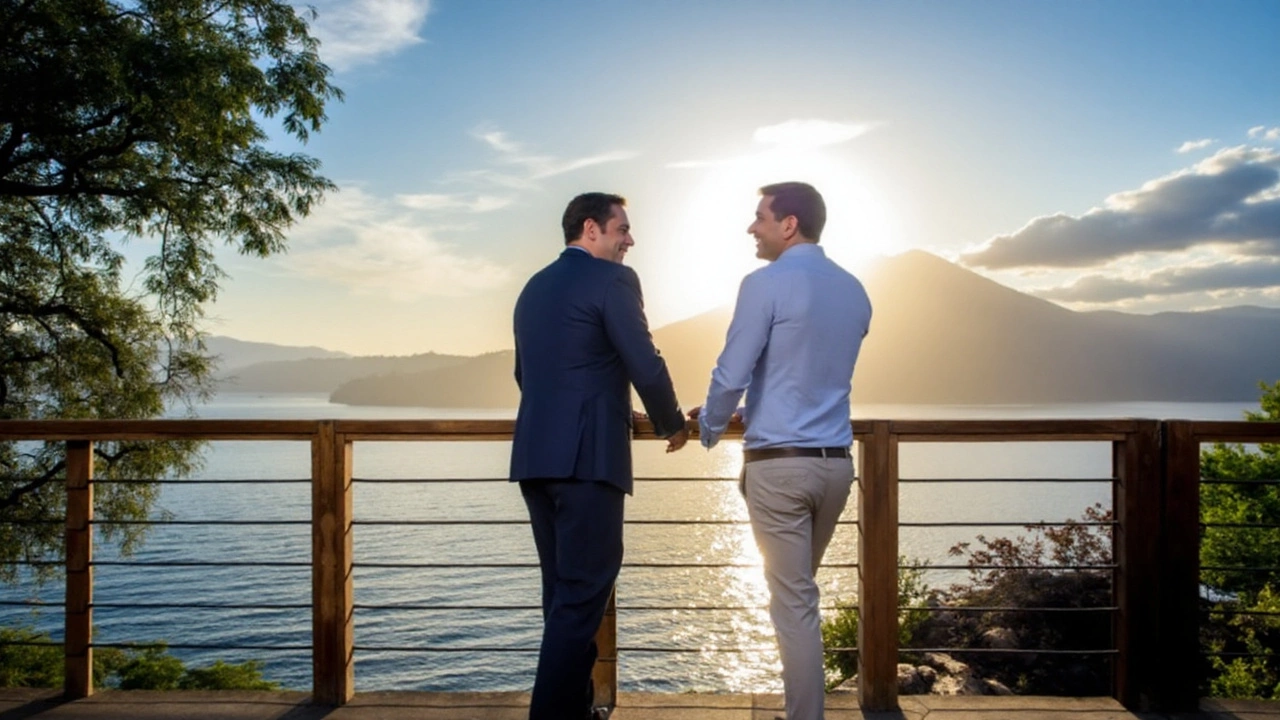El Salvador offers to take deportees of any nationality — and even hold U.S. convicts
El Salvador’s president, Nayib Bukele, says his country is willing to do what no other partner has offered Washington: accept deportees from the United States no matter where they were born, and even house dangerous criminals now in U.S. custody. He pitched the idea as a paid service, a way for the U.S. to “outsource part of its prison system” to El Salvador’s massive Terrorism Confinement Center, known as CECOT. Secretary of State Marco Rubio, in San Salvador on a regional swing, hailed the announcement as “the most unprecedented, extraordinary migratory agreement anywhere in the world.”
The broad contours, as described by both sides: El Salvador would take back its citizens living in the U.S. illegally and, far more controversially, accept non-Salvadoran deportees turned away by American immigration courts. Bukele went further on social media, saying his government would accept dangerous convicts now serving sentences in the U.S., including some who are U.S. citizens or legal residents, in exchange for a fee that would help fund his prison system. U.S. law does not allow the government to deport American citizens, so any step toward housing U.S. citizens abroad would require a different legal pathway than immigration deportation.
CECOT, the mega-prison Bukele opened in 2023, is built to hold tens of thousands and has become a symbol of his war on gangs. The facility, outfitted with high-security infrastructure and stark, no-frills conditions, has drawn intense criticism from human-rights groups for alleged due-process violations and harsh treatment. Bukele frames it as a necessary response to years of gang violence, arguing the results speak for themselves: murders have collapsed, and the state has reasserted control.
The proposal puts money and logistics front and center. The Salvadoran government says the inmate fee would be “relatively low” for Washington but large enough to underwrite prison operations at home. U.S. detention and incarceration costs can run into hundreds of dollars per inmate per day; El Salvador’s pitch implies it can do the job cheaper. Whether “cheaper” would pass legal muster or meet American standards for humane treatment is another matter.
Rubio’s team also confirmed he raised with Bukele a wider agenda: pushing back on the Chinese Communist Party’s influence in the region, cutting into the business model of transnational cartels, and tightening coordination on border and port security. After El Salvador, Rubio’s itinerary includes Costa Rica and Guatemala, where similar themes—migration control, anti-smuggling operations, and economic cooperation—are on the table.

The road ahead: law, rights, and geopolitics
The biggest brakes on this plan are legal, not logistical. The U.S. cannot deport its own citizens. Prisoner transfers typically require a bilateral treaty and usually the consent of the inmate; they also involve courts and, in practical terms, Congress. Even contracting a foreign government to hold non-citizen convicts or long-term detainees would raise constitutional questions about due process and protection from cruel and unusual punishment. Courts have applied certain constitutional safeguards to U.S. actions outside the country when the U.S. is effectively in control; any offshored incarceration would be tested on those grounds.
Immigration detention is a separate tangle. ICE operates under statutory constraints and oversight requirements that assume detention occurs within U.S. jurisdiction. Shipping immigration detainees abroad would be a dramatic departure from current practice. It would spark lawsuits over access to legal counsel, court hearings, and the right to seek asylum or other protection. Even a narrow version—transferring only those with final removal orders—would face scrutiny if detention conditions abroad block legal access or appeal.
Then there’s the human-rights ledger. Bukele’s “state of exception,” renewed repeatedly since 2022, led to tens of thousands of arrests with limited judicial review. Major watchdogs have documented allegations of abuse, arbitrary detention, and deaths in custody. Moving U.S.-held inmates into that system would collide with Washington’s own rhetoric on rights and the rule of law. Expect civil liberties groups to press Congress and the courts to stop any arrangement that evades domestic standards by moving prisoners offshore.
Politically, Rubio is leaning into a hard-edge deterrence strategy that mirrors earlier efforts. In 2019, the U.S. signed Asylum Cooperative Agreements with El Salvador, Guatemala, and Honduras to shift some asylum processing out of the United States. The “Remain in Mexico” policy sent many asylum seekers back across the southern border while cases proceeded. Bukele’s offer goes further: not just shifting processing, but potentially relocating incarceration.
How would mechanics work if anything moves forward? One path would be a limited pilot: El Salvador accepts non-citizen deportees who already have final removal orders and no pending claims, while both sides hammer out standards, monitoring, and access to consular services. Another path—far more complex—would be a prisoner-transfer framework for sentenced offenders. That would demand a formal instrument, congressional oversight, and clear compliance with international norms on treatment and legal review.
Money will shape the debate. For El Salvador, inmate fees are a revenue stream that Bukele says could “make our entire prison system sustainable.” For Washington, supporters will argue offshoring lowers costs and strengthens deterrence. Opponents will point to hidden expenses—oversight teams, transport, medical care, legal access—and the risk of costly litigation if conditions fail U.S. standards.
The China angle is not a side plot. Beijing’s footprint in Latin America runs through telecom networks, infrastructure loans, ports, and commodities. El Salvador switched diplomatic recognition from Taiwan to China in 2018 and has courted Chinese investment since. Rubio’s push to “de-risk” the region from Beijing’s influence blends with the migration agenda: tighter security ties, supply-chain deals, and incentives to keep governments aligned with Washington on tech and ports. Any far-reaching migration or detention pact would likely be bundled with investment and security assistance.
Regional ripple effects are inevitable. If El Salvador formalizes a deal, Guatemala, Honduras, and Costa Rica will face pressure to sign on to adjacent pieces—joint patrols, expedited removals, or regional processing centers. Mexico remains pivotal; most northbound routes still run through its territory, and any large-scale change in U.S. removal patterns affects Mexican border communities first.
For now, much of this remains a framework and a political declaration. Bukele has put a bold, controversial offer on the table that fits his strongman brand at home and his pitch to investors: El Salvador can deliver security at scale. Rubio has seized on it as proof the U.S. can reshape migration flows through tough partnerships. The test will be what lands in writing—an MOU, a treaty, or a pilot program—and whether it survives the gauntlet of Congress, the courts, and public opinion.
What to watch next: whether Washington and San Salvador publish draft terms; whether any pilot limits transfers to non-citizens with final deportation orders; how lawmakers react to offshoring incarceration; and the stance of rights groups monitoring CECOT. Rubio’s next stops in Costa Rica and Guatemala will show if this migration deal is a one-off headline or the start of a wider regional architecture that recasts how the U.S. handles deportations, detention, and border pressure.
